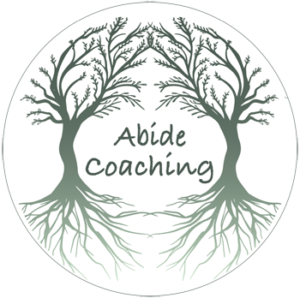Who are you becoming? This question is at the heart of coaching. We are in a constant state of evolution, with the power to shape our journey. Yet, often, we find ourselves drifting through life without purpose or intention. We transition from one phase to another, from student to employee or couple to parents, without much thought. In our daily lives, we may find ourselves conforming to others’ expectations or choosing the path of least resistance.
Our brains are wired to conserve energy, but when we consciously align our actions with our values, we unlock a path to a more fulfilling and energized life. This conscious alignment is not just a choice, but a powerful tool that empowers us to shape our lives in a way that resonates with our true selves.
So, let’s return to the fundamental question: who are you becoming? The ideal answer is someone who lives in harmony with their values.
How do I find out what my values are?
Here are some questions and a guided values exercise, but first, realize the power of self-reflection. Embark on a journey of self-discovery by asking yourself these questions and their opposites:
- What would you do with your life if you could wave a magic wand? What about doing that do you find meaningful? (What would you never do with your life?) We can identify values when we think about what makes something meaningful. I have a client who was feeling a little stuck. She can’t up and leave their job – you have to eat and pay the rent – she started volunteering at the local museum to gain experience in the field. She is living up to her volunteerism, curiosity, and lifelong learning values.
- What kind of people do you enjoy being around? Who inspires who? What about them inspires you? (What kind of people do you not enjoy being around or bring out the worst in you?) Relationships are not just a part of life, they are essential to the human experience; we grow from knowing or learning about others. They can be a mirror that reflects our values and help us understand ourselves better. I have a client who was in a bad relationship. The person she was involved with showed their true colors, which helped my client identify her values of honesty and integrity and a boundary on how she will be treated.
- What environment do you feel you thrive in? What qualities about that environment foster your strengths? (In what environment do you feel worse in?) Not everywhere is for everyone. I have a client who decided to alter her work schedule so she could spend one morning a week at the barn where her horse is stabled. This decision honors her values of service, compassion, and commitment. Another client is honoring his adventure and curiosity values by planning a six-month solo trip to Central and South America—a place he has explored before and loved.
- In what moments have you felt most satisfied? What made that moment satisfying? (In what moments have you felt most dissatisfied?) The past can give us clues about which way to go. I have a client who never hires anyone to fix anything in his home because he thrives on the challenge of figuring it out himself. He has become handy around the house and saved a ton of money, but most of all feeds his values of self-reliance, knowledge, experimentation, and satisfaction.
- What are you most proud of? (What are you not proud of?) Self-confidence often comes from a job well done. I have a client who teaches music. He wants to instill in students a love of performance and music. While he loves teaching, he needs to live more fully by his values of creativity and satisfaction, so he is looking for opportunities to play and compose music.
- What makes you happy? (What makes you angry?) Life without happiness isn’t much of a life. I have a client who followed a career path to her goal of working for a large organization known around the world. She did great work there but didn’t find happiness. When she decided to live by the values of faith, family, and simplicity, she moved across the county, started her own business, and served others. She is much happier.
Self-reflection can be difficult when you feel like you are just surviving, a position many neurodivergent’s think they are in, but taking these steps can lead to thriving.

